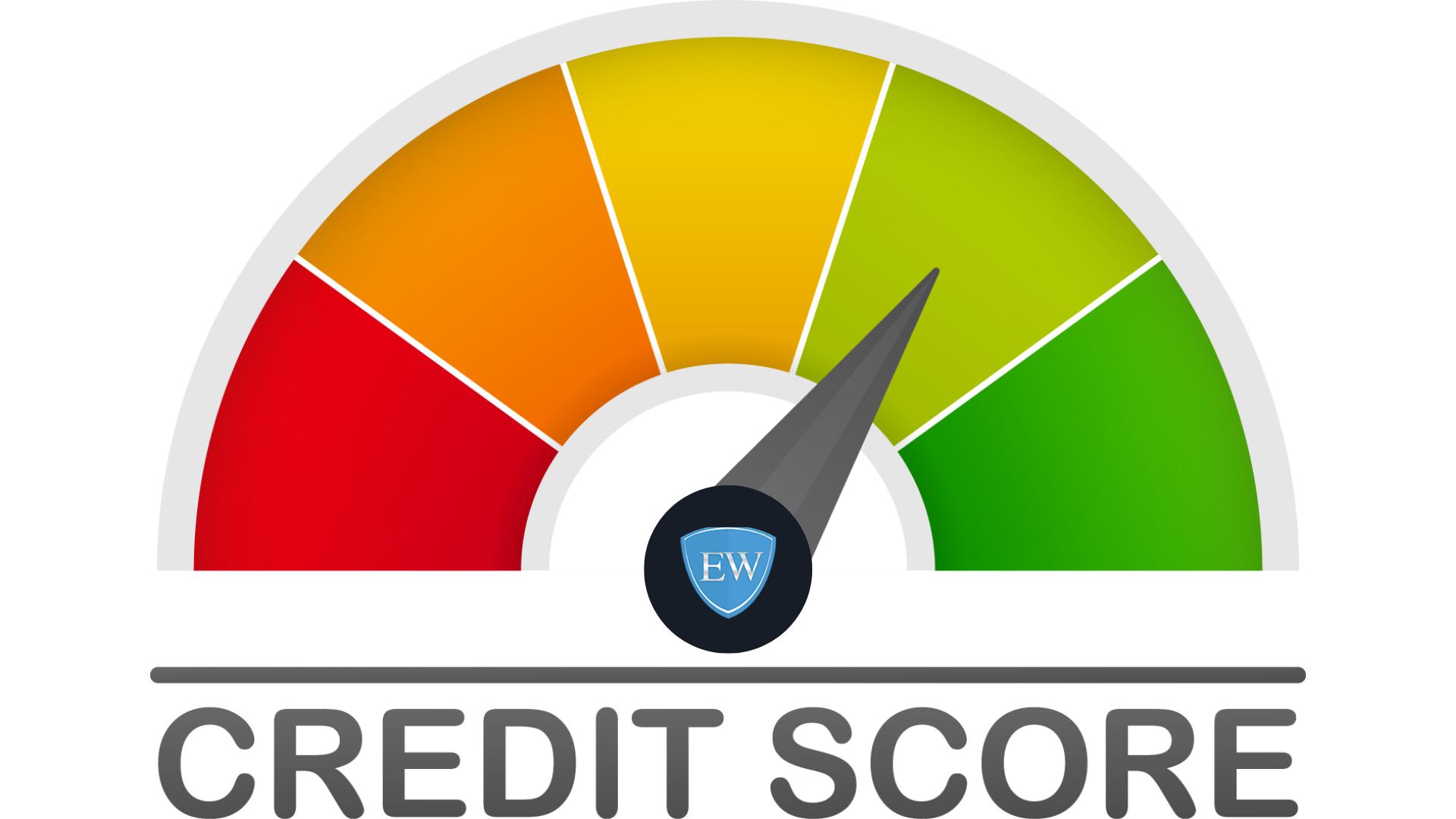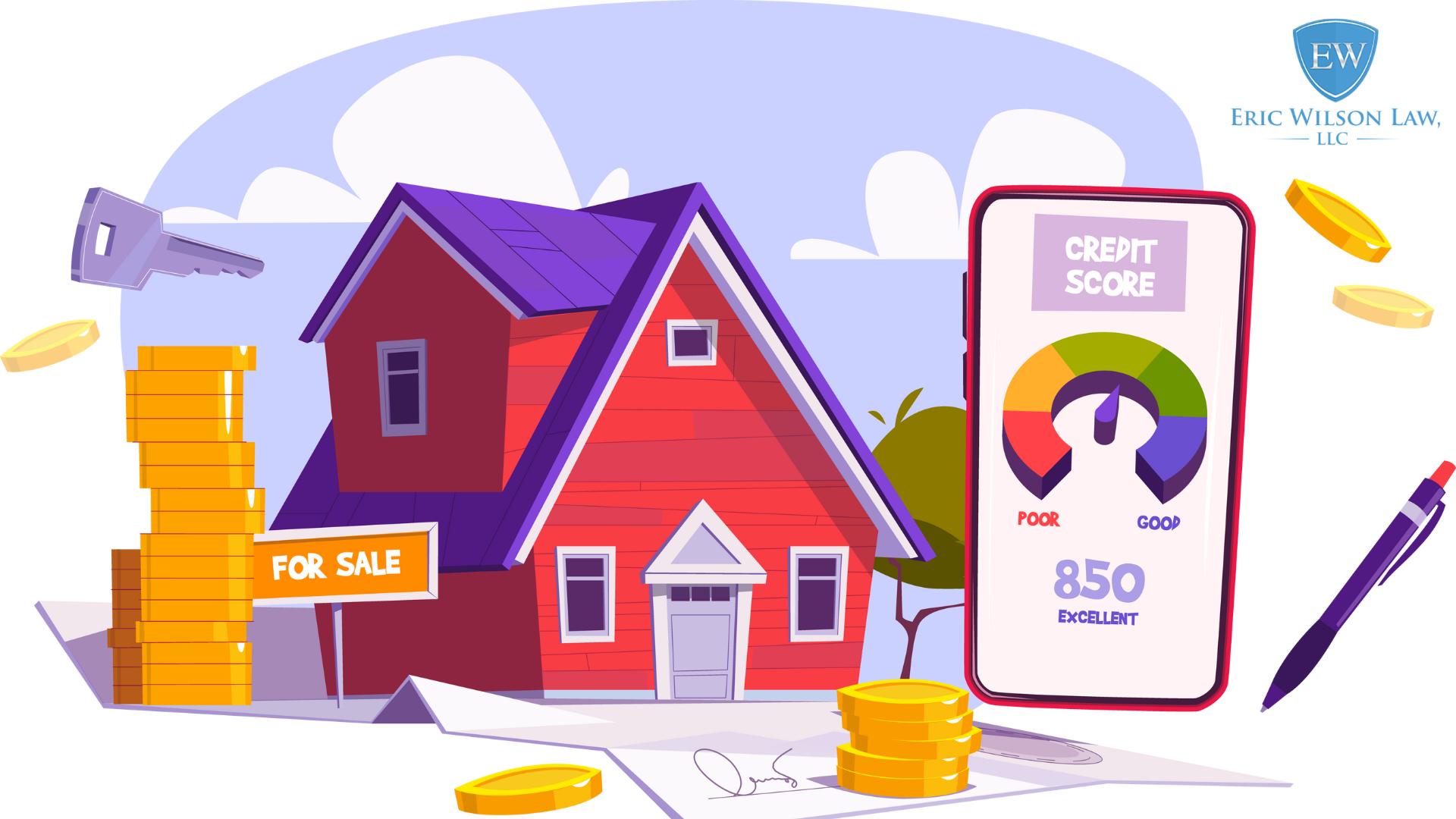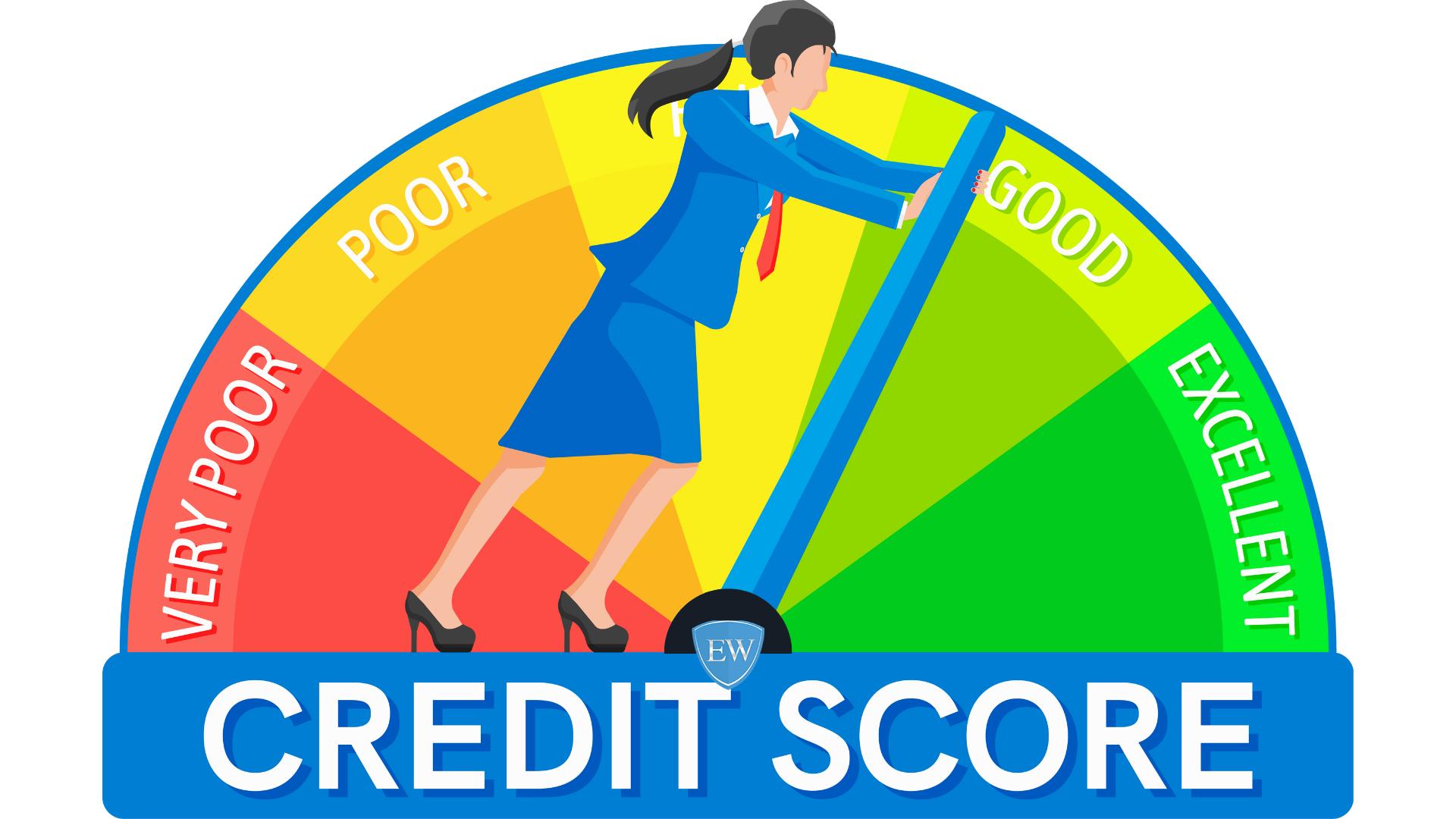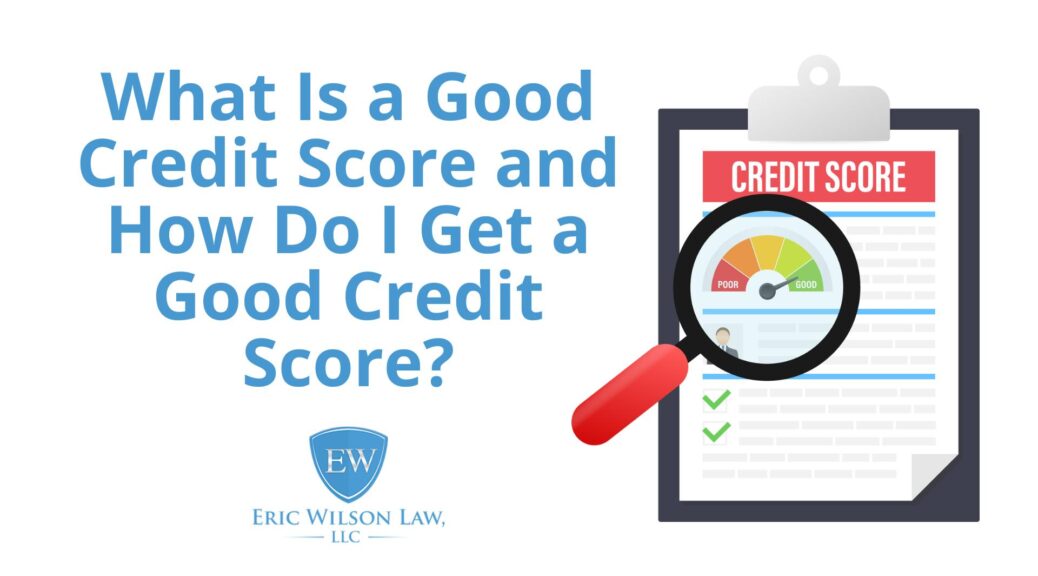As an experienced Tuscaloosa bankruptcy attorney, I’m often asked, “What is a good credit score?” In general, any credit score between 690 to 719 is considered a good credit score using the most popular 300-850 credit scoring models.
If you have a credit score of 720 or higher, this is considered an excellent credit score. Credit scores that range from 630 to 689 are considered fair credit scores. Any credit score that falls below a 630 is considered a bad credit score.
Again, all of these credit score ranges are based off of the FICO credit score system and the VantageScore system, the two most widely used credit scoring models in the United States.
If you find that your current credit score isn’t what you’d like it to be, there is hope.
When you have an experienced bankruptcy attorney on your side to help you navigate through the obstacles that come with having a low credit score, you can improve your financial health much more quickly, in most cases.
A trustworthy bankruptcy lawyer, like Eric Wilson, can provide you with professional legal advice on how to deal with credit agencies, how to raise your credit score, and how to improve your overall financial situation. At Eric Wilson Law, LLC, we provide free credit score consultations. We work on a contingency fee basis, so you won’t owe us anything, unless we’re able to help. Call our office at 205-349-1280 today for your free legal consultation today.

What is a Good Credit Score?
The term, “good credit score” will vary, depending on which credit scoring model you use. As previously stated, FICO and VantageScore are the most widely used credit scoring models, so we will go over what a good credit score range is on both of those credit scoring models.
What is a Good Credit Score Using the FICO Score Range?
According to FICO’s website, FICO scores are used by 90% of the top United States lending institutions for risk assessment evaluations. FICO was created by Fair Isaac Corporation, the company that originally developed the credit scoring system as we know it today. It pulls information and data from the United States three major credit reporting bureaus: Equifax, Experian, and TransUnion.
A good FICO score is any credit score between 670 and 739. According to the FICO scoring model, scores between 580 and 669 are considered to be a fair credit score, and credit scores between 740 and 799 are considered to be a very good credit score. Any credit score above an 800 is considered an exceptional or excellent credit score.
As of August 30, 2022, FICO states that the national average credit score was 716, the same score that it was the year before. While a 716 falls in the good credit score range, 2022 marks the first year that the average FICO score did not increase. FICO executives say that the average credit score was accompanied by a “modest degradation in key metrics.”
These FICO metrics include:
- Slightly elevated levels of missed payments
- Rise in consumer debt levels
- Increased amount of consumer obtaining new or more credit
What is a Good Credit Score Using the VantageScore Range?
VantageScore has helped over 3,000 unique users, including 2,600 financial institutions, with risk assessment. Recently, VantageScore credit scores that were used in either underwriting or account opening decisions increased by 13% from 2019.
While FICO scores are used more frequently, VantageScore boasts that 9 of the 10 largest banks and 43 of the 100 largest credit unions use the VantageScore credit scoring models in at least one area of their business.
When producing credit scores, VantageScore uses the same credit report data as FICO, pulling information from the three major credit bureaus: Equifax, Experian, and TransUnion.
Using the VantageScore scoring model, good credit scores fall between a 661 and a 780. This is also known as a “prime” credit score on this model.
Credit scores ranging from 780-850 are considered “super prime” credit scores, and credit scores between 601-660 are considered “near prime” credit scores. Any VantageScore credit score below a 600 is considered a “subprime” credit score.

Benefits of Having a Good Credit Score
While credit score ranges can be overwhelming, it’s important to at least be aware of where your personal credit score lies, especially if you’re wanting to make a large purchase in the near future.
Generally speaking, those who have good credit scores will be privy to more options financially than those with poor credit scores. If you have a high credit score, creditors will feel more confident that you’ll repay your future debts, as you agreed.
A good credit score can help you get:
- A car loan with lower interest rates
- An unsecured credit card with a lower interest rate
- A balance transfer card
- A mortgage with a lower interest rate
- Ability to open new credit options
Having a good credit score can prove to be helpful in many other ways. For example, in many states, those with higher credit scores pay less for car insurance. Additionally, many landlords across the United States will screen their potential tenants’ credit scores.
What is a Good Credit Score According to Most Lenders?
In some cases, lenders will set their own standards for what a good credit score means. They’ll use their own custom credit scoring models. This typically applies to mortgage providers, credit card issuers, and those issuing car loans.
These entities have the ability to decide what a good score is, based on their experience with credit risk, to ensure their business remains profitable. They get to decide whether or not they grant you a line of credit, and if they do, at what interest rate they’ll grant the line of credit.
A custom credit scoring system, in part, will depend on what types of borrowers each lender wants to attract. Additionally, a creditor may take into account how current events could potentially impact consumers’ credit scores, as a whole, and adjust their expectations accordingly.
Regardless, the vast majority of lenders base their financial decisions off of either VantageScore or FICO scores.
What is a Good Credit Score for Buying a House?
If you’re looking to buy a home, you don’t need a perfect credit score. In some cases, those with a poor credit score can purchase a home. However, because lower credit scores are often associated with more risk, subprime borrowers will be expected to pay higher interest rates.
Inversely, borrowers with excellent credit scores will be rewarded with lower interest rates.
What is a Good Credit Score for Renting an Apartment?
In general, property managers and landlords aren’t looking for the highest credit score. They’re more interested in your credit record and your ability to pay rent month-to-month.
What is a Good Credit Score for Buying a Car?
If you’re applying for a car loan, you will want to have at least a 700 credit score. Those with lower credit scores may still be able to apply for a loan, based on their credit history, but they will be expected to pay a higher interest rate.

What Affects Credit Scores?
In terms of what affects your credit score, there are two major factors that have the most influence. These factors include your payment history and your credit utilization rate.
Your payment history simply shows whether or not you make on time payments. Any late or missed payments will reflect negatively on your credit report and thus, will make you have a lower credit score.
Your credit utilization is simply your credit usage in comparison to your total credit limit.
There are other factors that matter, as well, but they carry less weight on credit reports. These factors include your credit history, your credit mix, and how often you’ve applied for credit or personal loans.
What Affects FICO Scores?
FICO uses percentages to represent how much each category will affect a score.
The following represents how FICO scores are calculated:
- Payment history: 35%
- Amounts owed: 30%
- Length of credit history: 15%
- Credit mix: 10%
- New credit: 10%
What Affects VantageScore Credit Scores?
Instead of using percentages, VantageScore lists the factors that affect credit scores by how influential they are, in general.
VantageScore lists the following factors in order of importance:
- Total credit usage, balance, and available credit
- Credit mix and experience
- Payment history
- Age of credit history
- New accounts opened
What Credit Scores Don’t Consider
Regardless of what credit scoring models are used, the following information should never be used when calculating credit scores:
- Your race, religion, national origin, color, sex or marital status
- Your age
- Where you live
- Your salary, title, employer, occupation, or employment history (While this information isn’t used to calculate your credit score, lenders may use this information to help make their credit approval decisions.)
- Soft inquiries
How Do You Get a Good Credit Score?
In order to get a good credit score, you’ll need to practice consistently good financial habits. Obtaining a good credit score won’t happen overnight, but practicing the following will help you build your credit score over time:
Pay Your Bills on Time
Payment history is one of the most important credit factors for calculating credit scores. If you pay all of your bills on time, this won’t immediately affect your credit range, but a single missed or late payment has the potential to affect your entire credit report.
Additionally, a missed payment can stay on your credit report for up to seven years.
Aim for Credit Utilization Under 30%
If your goal is raising your credit score, you’ll want to keep your credit card balances well below your maximum credit limits. This means you’ll want to keep all of your credit card balances low.
High utilization rates temporarily hurt credit scores, but once you’re able to reduce your credit card balance, your lower utilization rate will show up on your credit reports.
Also, you may be able to get a lower utilization score by getting higher credit limits. However, if you know you aren’t good with credit card accounts, you may want to avoid this option, as having a higher credit card limit may be too tempting to ignore.
Avoid Applying for Several Credit Accounts
If lenders or credit card companies are running your credit report for the purpose of credit decisions, this can cause a temporary dip in your credit score. If you need to apply for a loan or credit card, make sure that you research the lender or credit card issuer before you apply.
Keep Your Credit Accounts Open
Unless you have a good reason to close a credit account, keep it open. The longer you keep older credit accounts open, the longer your credit history will be. Keeping an older credit account open, even if you aren’t actively using the account, will help the average age of your credit accounts.
While keeping credit accounts open won’t drastically improve credit scores, closing an account will cut into your overall credit limit, and this will increase your credit utilization percentage.
Monitor Your Credit Reports
If you’re wanting to improve your credit score, you’ll want to actively monitor your credit reports or pay a credit monitoring service to take on this task for you. If you see any incorrect information or information that is outdated, make sure that you dispute the information you believe is incorrect in a timely manner.
Most negative information on your credit report will go away after seven years.

Tuscaloosa Credit Counseling for Credit Score Improvement
If you’re trying to get out of credit card debt and improve your credit score, but nothing seems to be working, you are not alone. Many people struggle with fixing their credit reports, getting lower interest rates, and improving their financial health, in general.
If you have a bad credit score, you don’t have to navigate the process of building your credit alone. Eric Wilson is a top-notch bankruptcy lawyer in Tuscaloosa, Alabama. He has extensive experience in bankruptcy law and understands how different credit scores can affect your current and future financial situation.
If you’re considering filing for bankruptcy and worried about the process of rebuilding your credit afterwards, Eric Wilson can help. He has extensive experience helping clients rebuild their credit scores after filing for bankruptcy. Call our office at 205-349-1280 to schedule a free, no obligation consultation with a reputable Tuscaloosa bankruptcy attorney.


